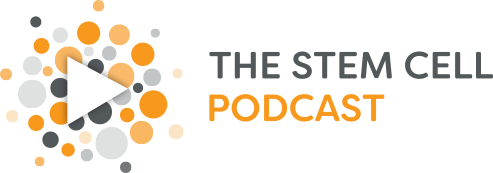
Podcast: Play in new window
Guest:
Writer, director and photographer Duane Fernandez talks about how curiosity drives him and his work. We talk to Duane on his experience with helping people from all walks of life and business experience their true potential and how this can apply to science.
Resources and Links
The Woman Who Can Smell Parkinson’s Disease – According to this article, a woman from Perth named Joy Milne can detect people with Parkinson’s through a telltale odor.
Neurons from Glia In Vivo – Scientists present new recipes for directly converting glial cells to neurons in mouse brains.
Exclusive Video: First “Glowing” Sea Turtle Found – Scientists diving near the Solomon Islands made an illuminating discovery: the first biofluorescent reptile ever recorded.
Japanese Scientist Haruko Obokata Stripped of Doctorate over Stem Cell Scandal – Waseda University revoked a doctoral degree awarded to a young researcher embroiled in a scandal that has rocked the scientific establishment.
Fighting Citrus Greening with Vibrating Orange Groves – According to this article, hijacking the mating signals of Asian citrus psyllids may help provide an environmentally friendly system for preventing citrus greening – a disease that has cost the Florida citrus industry billions of dollars in recent years.
Neurons Reprogrammed in Animals – Harvard Stem Cell Institute researchers have now shown that the networks of communication among reprogrammed neurons and their neighbors can also be changed, or “rewired.”
A Cell Therapy Untested in Humans Saves a Baby with Cancer – This article reveals that cancer doctors have been electrified by a new approach that involves genetically altering patients’ T cells, the soldiers of the immune system, so that they can better attack cancers.
Ovarian Cancer Drug Promising for Prostate Tumors – Olaparib, a drug designed to fight inherited ovarian cancers in women, appeared to help some men with advanced prostate cancer done in a small trial.
Insulin Plays Very Strong Role in Dopamine Release, Significantly Influences This Important Choice – The more insulin there is in the brain, the more dopamine will be released, but new research indicates that this dopamine regulation might actually affect what we choose to eat.
The Effect of Oxytocin Nasal Spray on Social Interaction Deficits Observed in Young Children with Autism: A Randomized Clinical Crossover Trial – This article shows that the synthetic hormone oxytocin nasal spray may provide a potential treatment to improve core social and behavioral difficulties in autism, but its efficacy has yet to be evaluated in young children who potentially may benefit to a greater extent.
Small Molecules Efficiently Reprogram Human Astroglial Cells into Functional Neurons – Researchers demonstrate that sequential exposure of human astrocytes to a cocktail of nine small molecules that inhibit glial but activate neuronal signaling pathways can successfully reprogram astrocytes into neurons in 8-10 days.
3D Technology, Stem Cells Used to Aid Skull Bone Regrowth – A team of West Australian researchers will help patients needing cranial reconstructions to regrow parts of their own skulls as part of a new procedure using stem cells and advanced 3D printing technology.
New Studies Question the Treatment of Female Infertility with Stem Cells – Professor Kui Liu from University of Gothenburg led a study, together with Professor Outi Hovatta of Karolinska Institutet, assert that the procedure of isolating stem cells is aspecific and also that the stem cells have not been capable of forming eggs.
Co-Transplantation of Autologous Bone Marrow Mesenchymal Stem Cells and Schwann Cells through Cerebral Spinal Fluid for the Treatment of Patients with Chronic Spinal Cord Injury: Safety and Possible Outcome – This article discusses the procedure of how some researchers assess the safety and feasibility of bone marrow mesenchymal stem cell and Schwann cell co-injection through cerebral spinal fluid for the treatment of patients with chronic spinal cord injury.
Gene Found that Regulates Stem Cell Number Production – A scientific team from the University of Southern California and the University of California, San Diego have described an important gene, Prkci, that maintains a critical balance between producing too many and too few stem cells.
In Vitro Optimization of Nanoparticle-Cell Labeling Protocols for In Vivo Cell Tracking Applications – Researchers suggest that while heeding the slight variations within cell lines, modifying the loading time and concentration of gold nanoparticles, can promote cell visibility in various nanoparticle-dependent in vivo cell tracking and imaging applications.
Differential Responses to Lithium in Hyperexcitable Neurons from Patients with Bipolar Disorder – Scientists developed an induced pluripotent stem-cell (iPSC) model for human bipolar disorder and investigated the cellular phenotypes of hippocampal dentate gyrus-like neurons derived from iPSCs of patients with bipolar disorder.
A Comparison of Genetically Matched Cell Lines Reveals the Equivalence of Human iPSCs and ESCs – Researchers found that human induced pluripotent stem cells (iPSCs) and human embryonic stem cells (ESCs) are molecularly and functionally equivalent and cannot be distinguished by a consistent gene expression signature.
Photo Reference: Courtesy of Duane Fernandez

